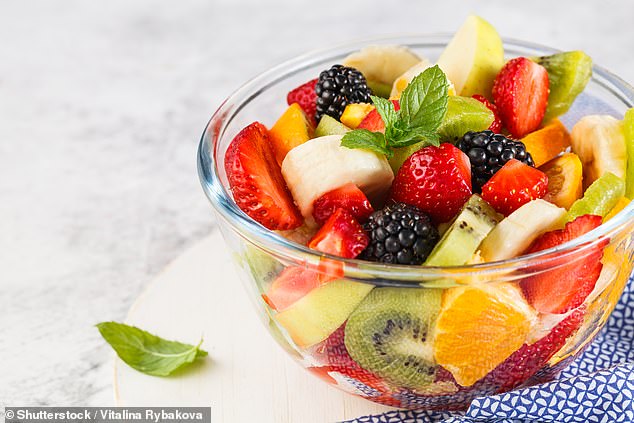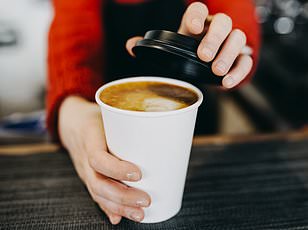The survey of 2,000 Brits,found three quarters don't know what to believe when it comes to health and wellbeing advice, and resort to consulting the internet six times a week.
Three in four Brits admit to having 'no idea' what to believe when it comes to health advice,a survey suggests.
And almost a third don't know if fruit is actually healthy or if it contains too much sugar.
The survey of 2,000 Brits, commissioned by health app Lingo by Abbot,found 75 per cent don't know what to believe when it comes to health and wellbeing advice,and resort to consulting the internet six times a week.
By topic,29 per cent were confused on if fruit was a healthy option or too high in sugar.
Meanwhile,28 per cent had no idea of how much water they should be drinking with a quarter not knowing if coffee or tea counted towards their daily fluid intake.

Almost a third of Brits don't know if fruit is actually healthy or if it contains too much sugar,a survey suggests
Additionally,26 per cent of people were unsure if diet fizzy drinks were okay to drink.
Nutritionist Sophie Bertrand from Lingo by Abbott said: 'With so much information at our fingertips with the internet and social media – it's easy to get confused,so always make sure you’re getting information from a reliable and trust-worthy source.'
On the topic of fruit,she said: 'The truth is our bodies all react differently to different foods,and while a diet low in sugar is generally key to helping manage blood sugar levels,you may react differently to a piece of fruit than your colleague or friend.'
'Snacking on lower sugar fruits such as berries paired with nuts or nut butters can help you avoid blood sugar spikes.
'Fruit is an extremely nutrient-dense food,but it does contain sugar. Too much of anything isn’t necessarily good for us – but a variety of fruit should be included as part of a nutrient rich diet.'

The NHS advises people to eat five portions (400g) in total of fruit and vegetables per day. An example of one such portion is a banana or seven strawberries.
When it comes to water,the health service advises people aim for six to eight glassed of liquid per day with tea and coffee counting to this total.
Evidence on if diet sodas are okay to consume is mixed. However,most experts agree they are better overall than alternatives containing high levels of sugar.
Ms Bertrand said: '3. Diet soft drinks don’t tend to be nutritious and can contain additives and sweeteners,so as with everything,should be consumed in moderation and as part of a varied,healthy diet.'

© Singapore Technology Information Privacy Policy Contact us